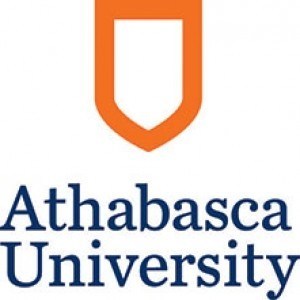Photos of university / #mcgillu
The Bachelor of Science (BSc) in Statistics at McGill University offers students a comprehensive and rigorous education in the fundamental principles and modern applications of statistical science. Designed for those interested in data analysis, probability theory, and statistical modeling, the program provides students with a solid foundation in both theoretical and applied aspects of statistics. Throughout their studies, students will explore topics such as probability distributions, statistical inference, regression analysis, experimental design, and multivariate analysis, preparing them for diverse careers in data science, analytics, research, and beyond.
The curriculum balances mathematical rigor with practical skills, incorporating coursework in mathematics, programming, and data management. Students gain hands-on experience through laboratory sessions, project work, and internships, enabling them to analyze real-world data and communicate their findings effectively. The program emphasizes critical thinking, problem-solving, and the ethical considerations of statistical practice, ensuring graduates are well-equipped to tackle complex data challenges in various industries such as healthcare, finance, government, and technology.
In addition to core courses, students have opportunities to specialize or gain interdisciplinary knowledge through electives in related fields such as economics, computer science, and environmental studies. The program also offers various support services, including academic advising, workshops, and connections with industry partners, to enhance students' learning experience and job prospects upon graduation.
Graduates of the BSc in Statistics at McGill are prepared for advanced studies in statistics or related disciplines, as well as careers in data analysis, actuarial work, research, and consultancy. They develop a quantitative mindset and technical expertise that are highly valued in today's data-driven world. McGill’s vibrant academic community, experienced faculty, and state-of-the-art resources make it an ideal environment for aspiring statisticians to thrive and make meaningful contributions in their chosen fields.
The Bachelor of Science in Statistics at McGill University offers a comprehensive and rigorous curriculum designed to equip students with foundational knowledge and practical skills in statistical theory, data analysis, and computational methods. The program emphasizes both theoretical understanding and applied expertise, preparing graduates for diverse careers in industry, research, and academia. Students will explore core topics such as probability theory, statistical inference, regression analysis, experimental design, and multivariate statistics, developing a strong grasp of quantitative reasoning and problem-solving abilities. In addition to traditional coursework, students gain hands-on experience through projects, laboratory work, and computer programming, utilizing statistical software and programming languages like R and Python. The program also encourages specialization in areas such as biostatistics, financial statistics, machine learning, and data mining, enabling students to tailor their education to their professional interests. Throughout the program, students are encouraged to develop critical thinking and communication skills vital for interpreting statistical results and making informed decisions based on data. The curriculum is supported by faculty members who are recognized experts in their fields, providing mentorship and fostering an environment of active learning and research. Graduates of the program are well-prepared to pursue advanced studies or enter the workforce in roles such as data analyst, statistician, data scientist, or research analyst. The program also emphasizes ethical considerations and responsible data handling practices, aligning with industry standards and societal expectations. McGill’s Statistics program is committed to fostering an inclusive academic community and providing students with the tools necessary for successful careers in an increasingly data-driven world.
Program requirements for the Bachelor of Science (BSc) in Statistics at McGill University typically include completing core coursework in probability theory, statistical inference, regression analysis, and computational statistics. Students are also expected to choose electives within related fields such as mathematics, economics, or computer science to complement their understanding of statistical methods. The program generally mandates a minimum number of credits, often around 90 to 120, including both mandatory and elective courses, to ensure a comprehensive grasp of statistical principles and their applications. Additionally, students may be required to undertake a senior research project or a thesis in their final year, which involves applying statistical techniques to real-world data, demonstrating analytical skills, and communicating their findings effectively. Prerequisites often include introductory courses in calculus and introductory statistics, ensuring students have a solid foundation before progressing to advanced topics. Some programs also require students to participate in practical training or internships to gain hands-on experience in data analysis and statistical software tools such as R, SAS, or SPSS. Emphasis is placed on developing both theoretical knowledge and practical skills applicable across various industries including healthcare, finance, government, and technology. For graduation, students must maintain a minimum GPA, comply with residency requirements, and complete all required coursework within a specified time frame. Additionally, there may be language proficiency requirements for international students. Overall, the program aims to prepare students for careers as statisticians, data analysts, or further studies in graduate programs, emphasizing both quantitative skills and critical thinking.
The financing of the Bachelor's Degree in Statistics at McGill University typically involves multiple components to support students throughout their studies. As a major research university in Canada, McGill offers a range of financial assistance options for its undergraduate students enrolled in the Statistics program. Undergraduate students can access government-funded financial aid, including federal and provincial student loans and grants, which are designed to help cover tuition fees, living expenses, and other educational costs. Eligibility for these programs usually depends on factors such as financial need, academic performance, and residency status.
In addition to government aid, McGill provides various internal funding opportunities. These include scholarships, bursaries, and awards that are based on academic merit, leadership qualities, community involvement, and other criteria. Some of these awards are specifically targeted at students in quantitative fields like Statistics to promote excellence and support talented individuals. For example, students may qualify for entrance scholarships upon admission or for ongoing awards during their undergraduate studies, which can substantially offset the total cost of education.
Part-time work options also form an essential part of student financing. McGill University offers job opportunities on or near campus, allowing students to work while studying to help finance their tuition and living expenses. Positions might include research assistance, administrative work, or tutoring, which not only provide financial benefits but also valuable professional experience.
Many students also consider private loans or parental support, although these are less common strategies compared to scholarships and work-study programs. International students, if applicable, often need to explore additional funding sources, such as international scholarships, grants, or private sponsorships, as they may not be eligible for some government aid programs.
Furthermore, the university encourages early planning and financial literacy, providing workshops and resources to help students manage their finances effectively throughout their studies. Overall, students enrolled in the Statistics program at McGill can access a comprehensive suite of financial support options designed to help mitigate the costs of higher education and facilitate successful completion of their degree.
The Bachelor of Science (BSc) in Statistics at McGill University offers students a comprehensive education in the theory and application of statistical methods. This program is designed to equip students with a solid foundation in statistical reasoning, data analysis, and computational techniques essential for various industries, including finance, healthcare, government, and technology. The curriculum covers fundamental topics such as probability theory, statistical inference, regression analysis, experimental design, and Bayesian methods. Students also gain practical experience through coursework involving real-world data sets, programming in statistical software such as R and SAS, and participating in research projects.
The program emphasizes both theoretical understanding and hands-on skills, preparing graduates for roles in data analysis, research, and decision-making. It also encourages interdisciplinary collaboration, allowing students to take courses in related fields like mathematics, economics, computer science, and business. Students have opportunities for internships and co-op placements, which enhance professional experience and employability after graduation. The faculty comprises leading experts in statistical research, ensuring students receive high-quality instruction and mentorship.
Graduate prospects for students completing this program are strong, with many going on to careers in analytics, research, consulting, and academic research. Additionally, some students choose to pursue graduate studies at McGill or other prestigious institutions to deepen their specialization in statistics or related disciplines. The program is suitable for students with a strong interest in mathematical reasoning, problem-solving, and data science, who enjoy working with complex datasets and extracting meaningful insights. With a global focus on data-driven decision-making, a degree in Statistics from McGill opens numerous pathways for a dynamic and impactful career in the rapidly expanding field of data science and analytics.


